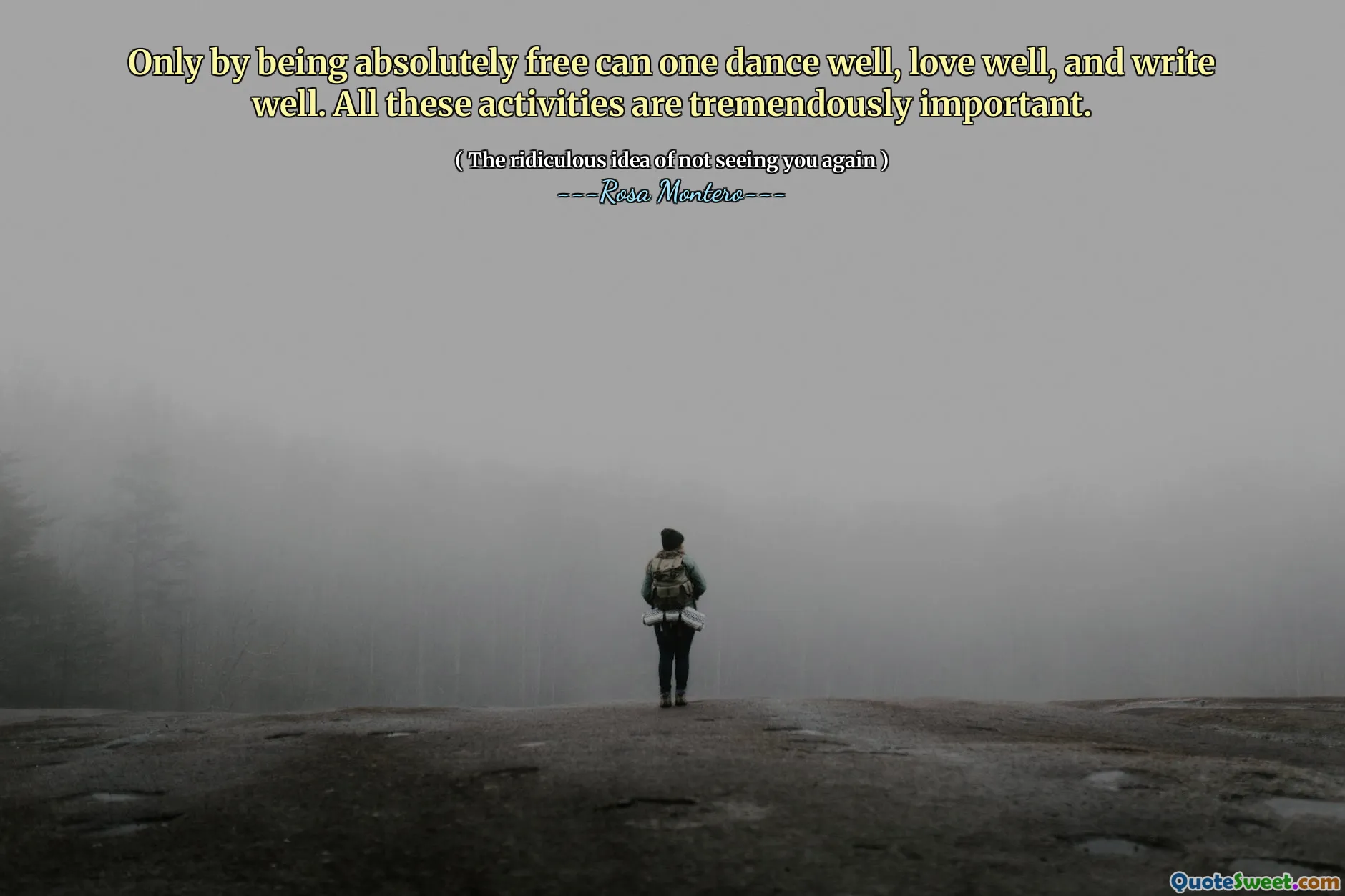
Only by being absolutely free can one dance well, love well, and write well. All these activities are tremendously important.
Rosa Montero's reflection emphasizes the profound link between personal freedom and the quality of our expressions and experiences. When we are truly free—free from societal constraints, internal doubts, and external pressures—we open the door to authentic self-expression. Dancing well isn't just about technical skill; it's about feeling unencumbered by inhibitions, allowing your body to respond naturally to the music. Similarly, loving well requires emotional freedom—being able to open your heart without fear or prejudice, embracing vulnerability with confidence. Writing well is yet another act that demands mental and emotional liberty, enabling thoughts to flow honestly and creatively, unfiltered by self-censorship or doubts. The recognition that these activities are 'important' underscores their significance in our human experience—not merely as pursuits for leisure or achievement, but as vital expressions of our innermost selves. In essence, freedom acts as the foundation for genuine joy and excellence across various facets of life. When oppressed or constrained, our ability to dance, love, and create diminishes, leading to a diminished sense of fulfillment. Montero’s insight invites us to consider the importance of safeguarding our personal freedoms, not just as a political ideal, but as a crucial element for living fully and authentically. True freedom is not just an absence of obstacles; it’s the presence of possibility—the possibility to be our true selves and to pursue our passions without fear or restraint.







